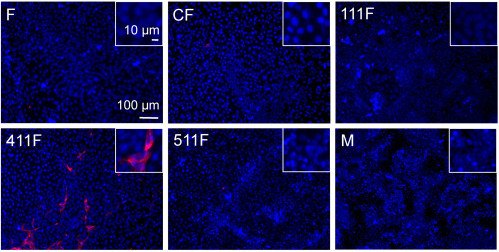BME advances stem cell research

March 8, 2022 — In a new study, BME researchers showed that laminin 411 alone increases endothelial differentiation of induced pluripotent stem cells over collagen I or Matrigel.
BME Professor and Department Head Brenda Ogle, BME PhD students Mikayla Hall and Sophie Givens, and University of Minnesota Medical School collaborators published the research in the March 8 issue of Stem Cell Reports.
Researchers also showed that extracellular matrix-guided endothelial differentiation is dependent on activation of focal adhesion kinase, integrin-linked kinase, and Notch which ultimately enable β-catenin to transit to the nucleus. Once in the nucleus, β-cateninto drives transcription of genes necessary for endothelial specification.

Results indicate that the extracellular matrix contributes to endothelial differentiation through multiple avenues, which converge at the expression of active β-catenin.